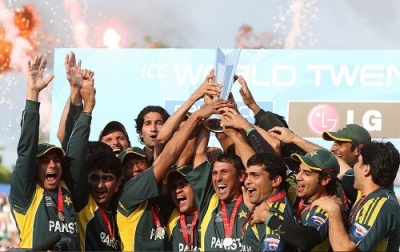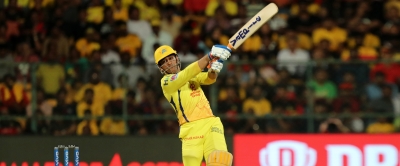PAKISTAN’S 2009 T20 WORLD CUP TRIUMPH

Here, we will sharpen our sports quotient by taking a look at one iconic moment from sporting history. Here's a look at the 2009 edition of the T20 World Cup that was won by Pakistan...
After losing against India in the final hurdle of the 2007 T20 World Cup. Pakistan went on to win the next edition that was held in England in 2009.
The 12 teams in the competition were split into four groups of three, with two teams from each group progressing to the Super 8s.
Pakistan lost their first game against England, but won against the Netherlands to finish second in Group B and qualify for the Super 8s stage. Pakistan were grouped along with Sri Lanka, New Zealand and Ireland in Group F during the Super 8 stage. After losing their first game in this stage against Sri Lanka, Pakistan notched up victories against New Zealand and Ireland to finish second behind Sri Lanka in the group and qualify for the semis. Pakistan defeated South Africa by seven runs in the semi-final to set up a final against Sri Lanka, who defeated West Indies convincingly in their last four clash.
Chasing 139 for victory, Pakistan lost just two wickets, reaching the target with eight balls to spare to become just the second side to lift the T20 World Cup title.
DID YOU KNOW?
- Pakistan were the losing finalist in the inaugural T20 World Cup held in 2007 that was won by India.
- With 13 wickets in the tournament, Pakistan's Umar Gul was the highest wicket taker of the 2009 T20 World Cup.
- Runners-up Sri Lanka had the top-scorer of the tournament. Tillakaratne Dilshan, who notched up 317 runs, was also named the player of the series.
Picture Credit : Google

